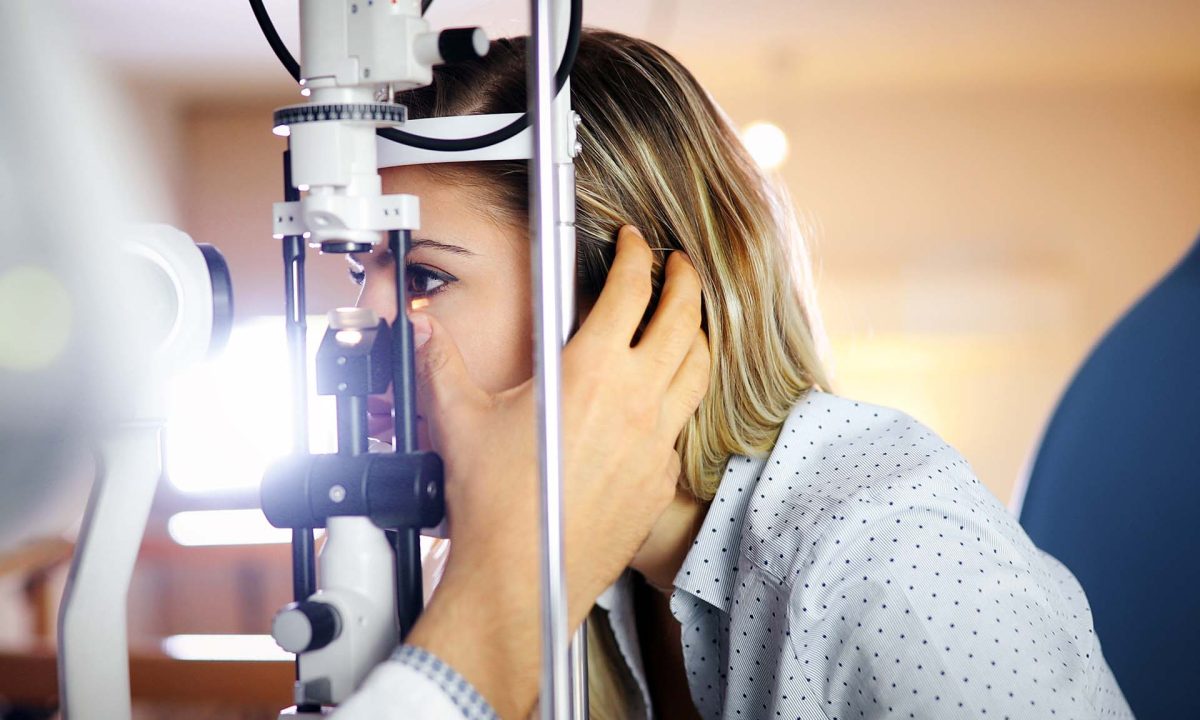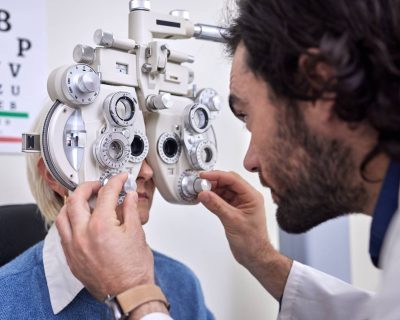
10 Warning Signs & Symptoms Of Eye Problems
Your life changes when your vision is affected. That is why it is critical to have a reliable optometrist and to have frequent eye exams. It is also crucial to be aware of typical eye issues signs that may suggest an acute or chronic illness. The sooner you recognize these signs, the sooner you can diagnose and cure eye issues. That is crucial because early care can prevent eye deterioration and, in severe situations, even save your sight! Here are 10 warning signs and symptoms to detect potential eye problems.
1. Sudden blurry or distorted vision
This symptom may be the most noticeable to patients. Consult your optometrist right away if you notice sudden blurriness or distortion in your vision, such as a straight line that appears wavy. Sudden fuzzy vision can impact either your peripheral or central vision and can be an indication of a variety of dangerous eye diseases. Some of these problems need quick attention from an optometrist to avoid permanent total or partial blindness.
2. Headaches
A headache is characterized by discomfort in the head, neck, and face. A headache is usually the result of emotional or physical strain, such as stress or high blood pressure. Depending on the source, headaches can affect different sections of the head. A headache might be described as a dull ache, a severe pain, or throbbing in the temples. If over-the-counter medicine does not relieve your headache or if the pain lasts for an extended period of time, you should see a doctor. A headache can also be caused by a variety of eye issues, some of which are classified as eye emergencies. Some eye conditions that are related to the symptom of headaches may be angle-closure glaucoma, refractive error, migraine, and photokeratitis.
3. Red eyes
Many different disorders and accidents can induce redness in the eye, which can cause irritation, swelling, and vision loss. Typically, the little blood vessels in the eyes become inflamed, causing the whites of the eyes to appear pink or red. Red eyes might indicate that your eyes are inflamed. It might also be a symptom of a larger disease or illness. If your eyes are red for a lengthy period of time, it is recommended to consult your optometrist.
4. Oversensitivity to light
Light sensitivity, often known as photophobia, is a condition that makes bright light unpleasant. Squinting in a brilliantly light environment or when outside is a symptom of mild photophobia. When your eyes are exposed to any type of light, more severe instances may cause substantial pain. Light sensitivity is also a typical indication of a variety of eye conditions such as Cataracts, Corneal abrasions, Allergies, Keratoconus, migraines, and Strabismus.
5. Floaters or spots
Everyone has experienced floaters or spots at some time in their lives, and this commonly occurs while gazing at bright lights. However, it is more persistent, frequent, and intense in certain individuals. Floaters are little things that float around in your range of vision and are frequently caused by old age. The vitreous fluid in your eyes grows more fluid as you age and your eyes gradually degenerate. As time passes, the small fibers in that fluid begin to clump together, casting shadows on the retina. If you have too many floaters or spots, it might be a sign of an underlying disease such as inflammation in the back of the eye, a ruptured retina, or bleeding. If you observe more floaters than usual, see flashes of light, or detect blackness or dark spots in your eyesight, you should consult an optometrist.
6. Night blindness
The eye is normally well suited to deal with low-light conditions. The pupil will dilate to take in as much available light as possible, allowing us to see in dim lighting. Some significant eye disorders impair the eye’s capacity to absorb or process light, making it difficult to see at night or in low-light situations. Conditions that can cause night blindness include Nystagmus, Glaucoma, Cataracts, and Retinitis pigmentosa.
7. Flashes
Flashes might appear in your field of vision as flashing lights or lightning streaks. After being knocked in the head, some patients describe seeing flashes comparable to seeing stars. Flashes are often caused by the retinal rubbing or pushing on the retina. It may also occur as a result of aging. Flashes, on the other hand, are prevalent with specific eye diseases, such as detached or torn retina, and migraines. If you experience flashes or have just gone through eye surgery, it is recommended to consult your optometrist.
8. Impaired peripheral vision
Peripheral vision refers to your capacity to see out of the corner of your eye or in areas where you are not focused. If you are having trouble seeing objects around you, whether on one side or both, it might be due to glaucoma-related optic nerve damage. Eye occlusions, which prevent the usual flow of blood to the optic nerve and other components of the eye, can also cause this issue, in the case that you are experiencing problems with your peripheral vision, you should see a doctor and have it looked at.
9. Double vision
Double vision is a serious issue that should be addressed right away, whether it occurs occasionally and sporadically or all the time. It is characterized as a person perceiving two images either next to or on top of each other. It can quickly cause issues with balance, reading, and daily activities. It is monocular if it happens in one eye, but binocular if it occurs in both. It can be caused by a variety of underlying diseases, ranging from nerve and muscle injury to illnesses that weaken the eye muscles. It can also happen as a result of drug or alcohol usage. If it continues in the absence of alcohol or drugs, it is a symptom that must be evaluated and addressed immediately.
10. Swelling on or around the eye
Swelling in the eye can create symptoms similar to those discussed above, but swelling surrounding the eye can be caused by a variety of different issues that your eye specialist can correctly evaluate. Swelling might be caused by allergies, fluid retention, or acute eye infections that, if left untreated, can cause irreversible damage. Eyelid swelling can also suggest major health conditions such as orbital cellulitis, ocular herpes, or even Graves’ disease, all of which can permanently affect your eyesight.
Preventing eye diseases
Eye disorders can take various forms, and the only way to adequately tackle them is to have a qualified, experienced optometrist on your side. Even those who do not wear glasses and have never had refractive disorders are vulnerable to eye health complications. Even if you do not believe you need to see an optometrist, regular check-ups can provide peace of mind and allow you to spot possible issues early. If you encounter any of the symptoms mentioned, you should consult an optometrist. Some symptoms may be acute and arise just as a result of a migraine or headache, but if they continue and are uncomfortable, contact your local optometrist to schedule an appointment immediately.




